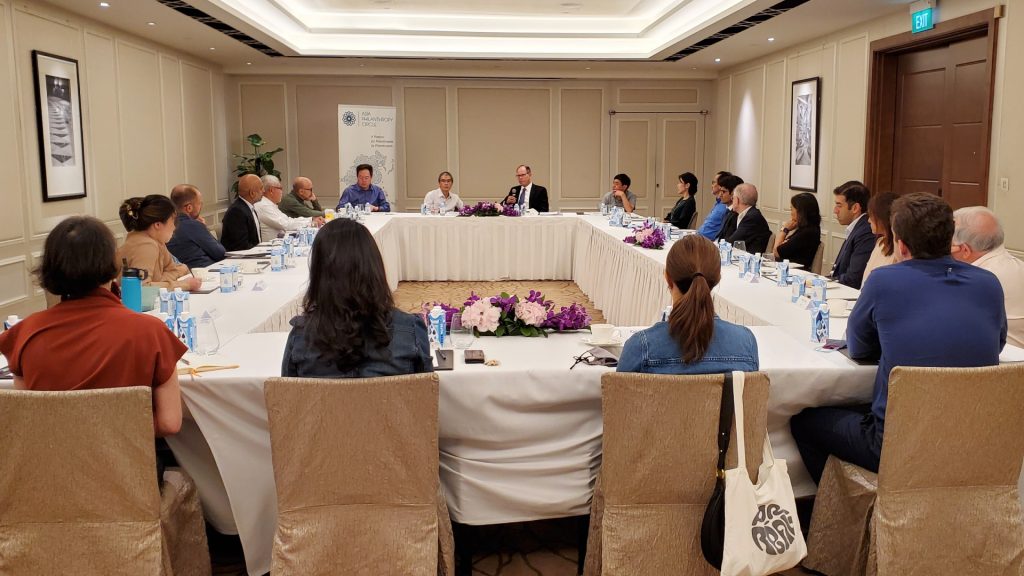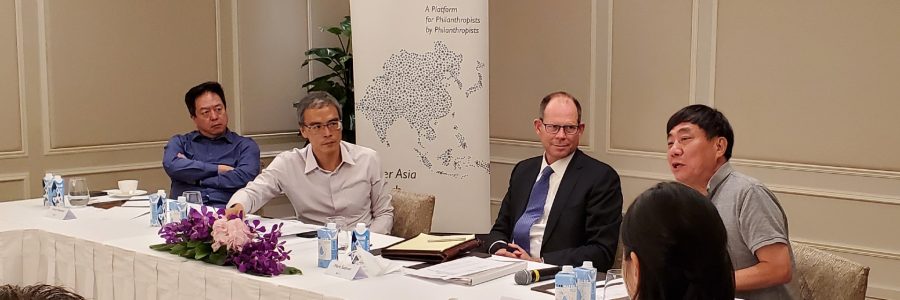How does the role of philanthropy in society need to evolve in these troubled times?
BY JIA XIAN SEOW
The Bill & Melinda Gates Foundation (BMGF) recently announced its intention to spend US$9 billion annually by 2026—a 50% increase over pre-pandemic spending levels. With an endowment now totaling an estimated US$70 billion, one would not be faulted in wondering whether the world’s second largest philanthropic foundation may presume to be the global authority on effective giving for the world’s greatest needs.
Instead, speaking to APC members a Fireside Chat in June 2022, BMGF CEO and Board Member Mark Suzman’s tone was decidedly one of humility and deep respect—for fellow philanthropists, non-profits, civil society, governments, businesses, and even for BMGF’s own critics. He and APC Chairman Laurence Lien discussed current sentiments and outlook on philanthropy in the West vis-à-vis Asia, how philanthropy needs to evolve as attitudes towards wealth shift, as well as opportunities to collaborate with BMGF.
Recent years have seen the rise of criticism against western philanthropy—such as the lack of lack of transparency, power-imbalances, and the vulnerability of grantees to pressures exerted by donors. Reflecting on this, Suzman observed that public perceptions have evolved—especially around wealth and growing levels of inequality. Such discourse has extended into philanthropy—and whether philanthropists may exert disproportionate influence in their areas of work. Suzman recognised that these are healthy questions, and acknowledged that it can sometimes be difficult for philanthropists to get direct and objective feedback on how to do better. He stressed BMGF’s priority to diversify their pool of credible partners, and to establish a rigorous process of continued frank dialogue and feedback to ensure that success, if any, is fully driven by local communities and ownership.
With philanthropy being an increasingly contested space, Suzman emphasized a corresponding need for philanthropists to be transparent about the motivations behind their work. Equally important is the need for philanthropists to learn from each other and share best practices, to work together synergistically in common areas, and to provide private and public platforms for such exchanges and collaborations in order to achieve greater, more profound impact.
Suzman’s career history shows that he has been no stranger to the concepts of both transparency, openness, and forging partnerships to effect real change. Raised in South Africa, his began his career as a journalist covering the courts, inequality and injustice during the latter years of Apartheid. He subsequently took up a position at the United Nations and gained perspectives on working effectively with governments and policymakers, later helping to develop and implement the Millennium Development Goals under the leadership of then Secretary-General Kofi Annan.

Mark Suzman has now been with the Gates Foundation for over 15 years, where he has been leading the foundation’s efforts to bring together governments, business and civil society to tackle complex global problems, and build strategic partnerships and alliances to increase awareness, action, and resources devoted to global development and health, including of course in Asia.
Suzman’s insights on philanthropy in Asia was naturally one of the other highlights at the Fireside Chat. Despite the incredible diversity of Asia, Suzman observed that philanthropy in the region has often been characterised by a lack of trust cutting across all stakeholders in the ecosystem—including between governments, philanthropists and non-profits. Suzman reiterated the need for transparency rather than secrecy, the latter being a hallmark for a significant proportion of the region’s philanthropy. While he has seen increasing acceptance of philanthropists by governments in Asia over the past decade, Suzman predicts that the transparent communication of philanthropic motivations and goals and the building of platforms for co-investments in public goods will continue to remain priorities in the foreseeable future to foster trust within the Asian ecosystem.
Ultimately, Suzman noted that there are no quick fixes to the world’s toughest challenges. In this regard, a key takeaway from the Fireside Chat was that givers should learn to be comfortable with failure; failure being part and parcel of the patient, risk capital required of philanthropy. Secondly, that the common thread which binds philanthropists, through their shared sense of commitment and obligation to give back to society, should serve as a powerful reminder that it is impossible for the world’s most complex challenges to be tackled alone, but only by working together, shoulder to shoulder with others.

